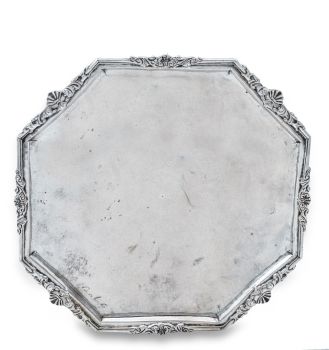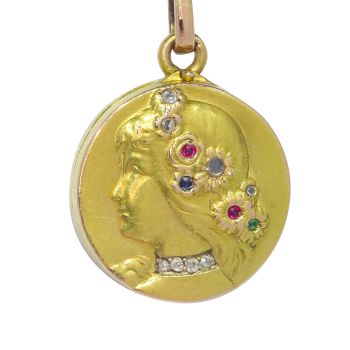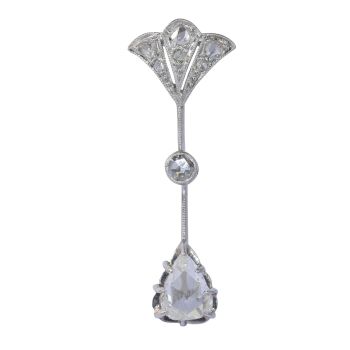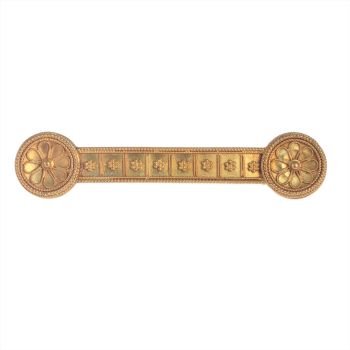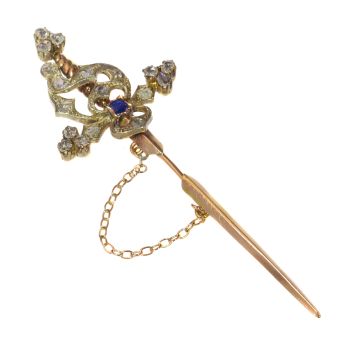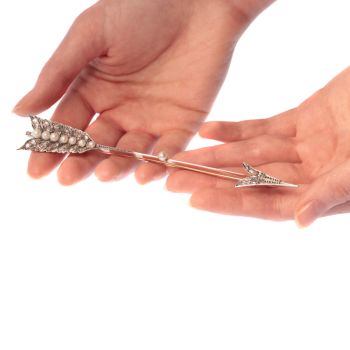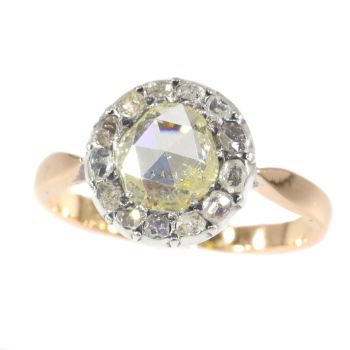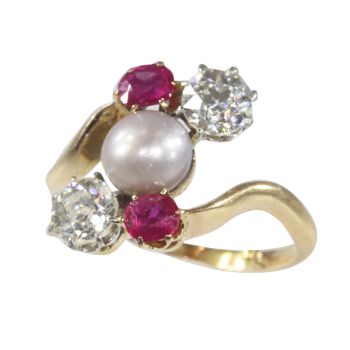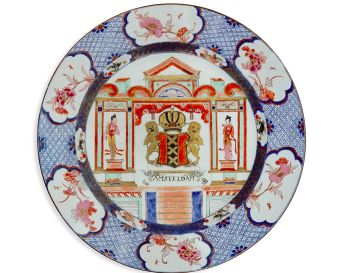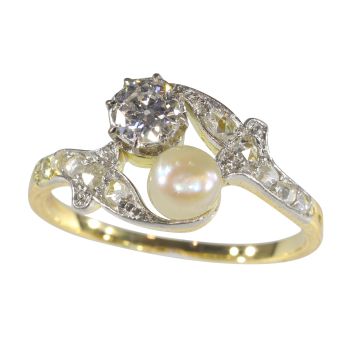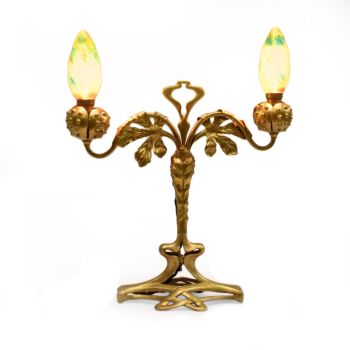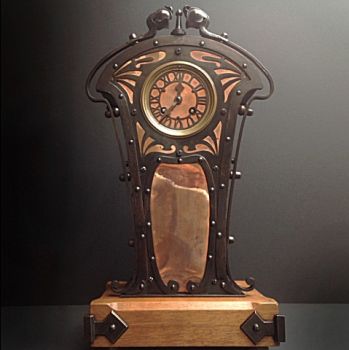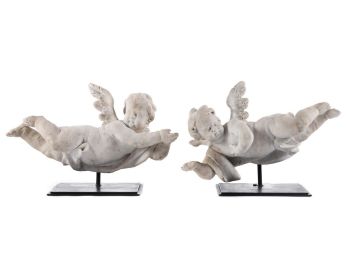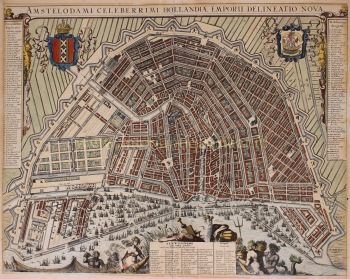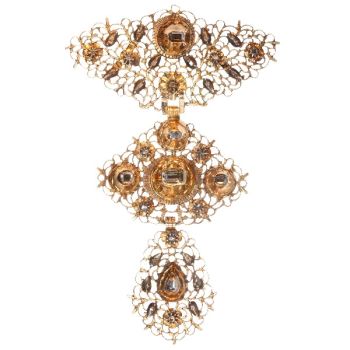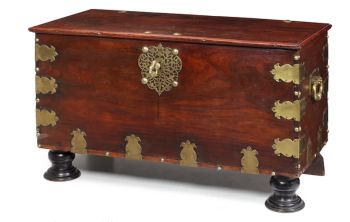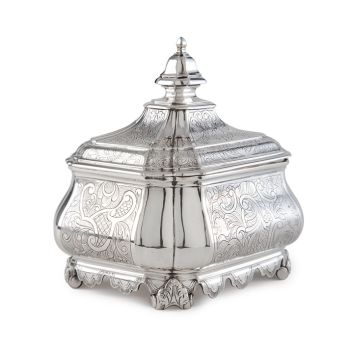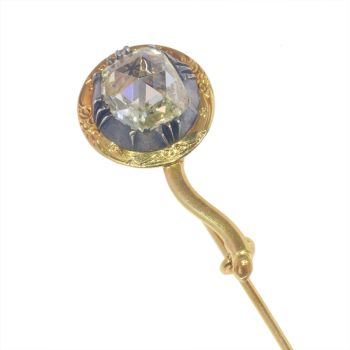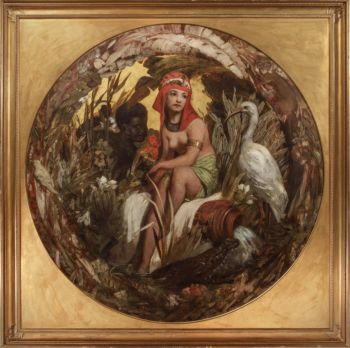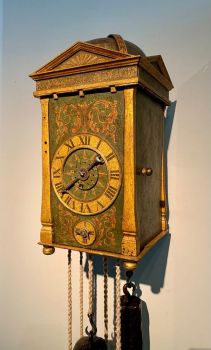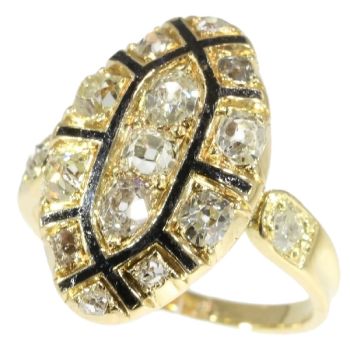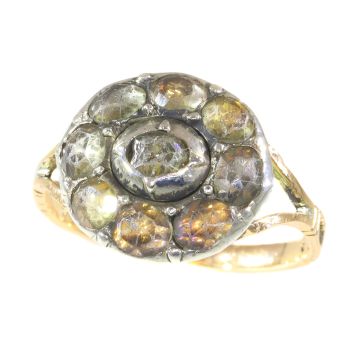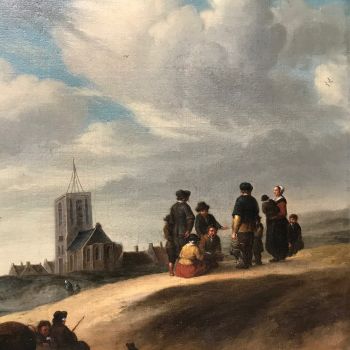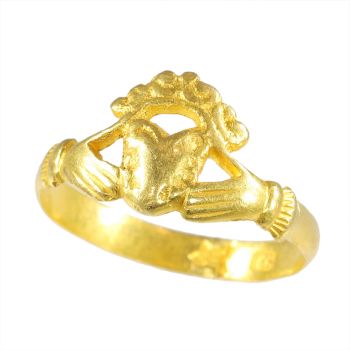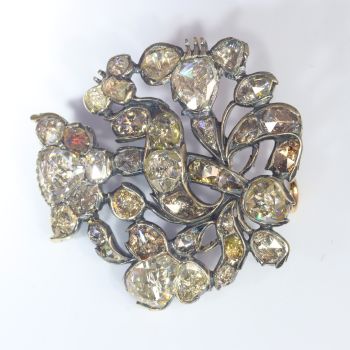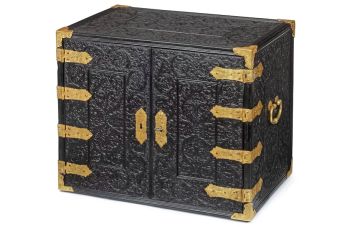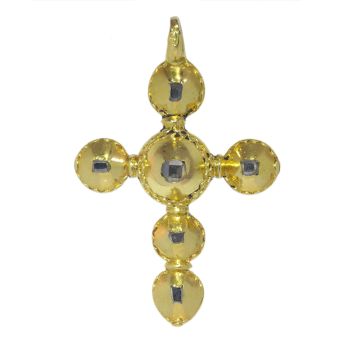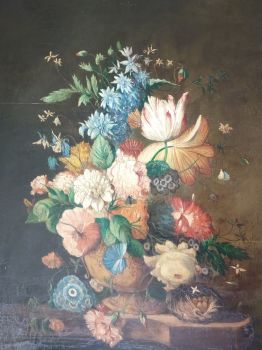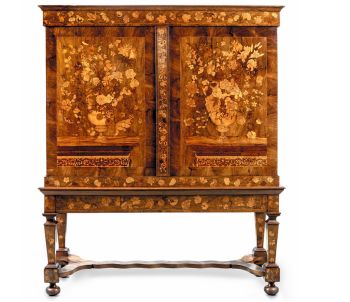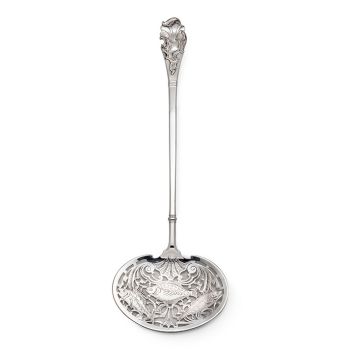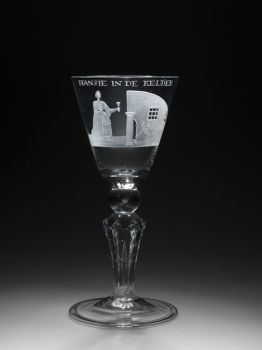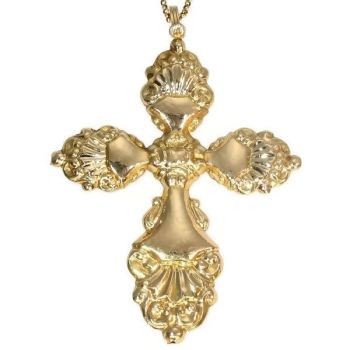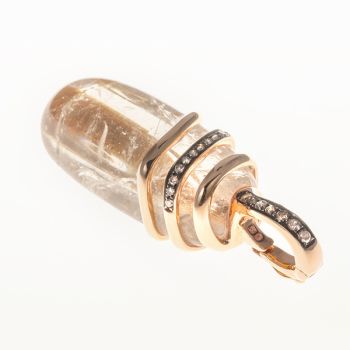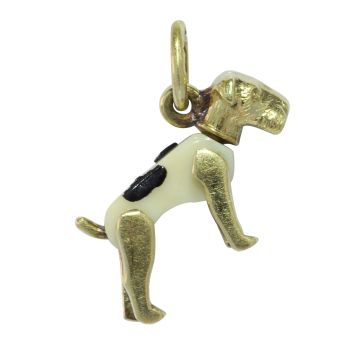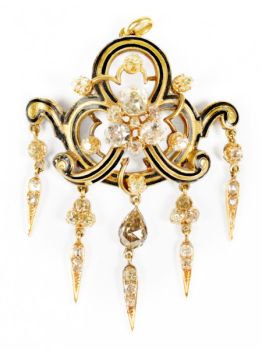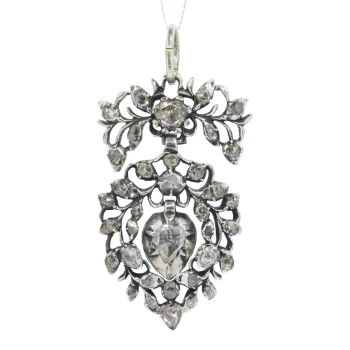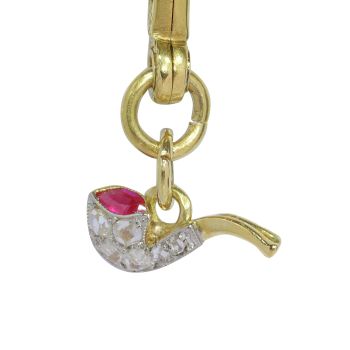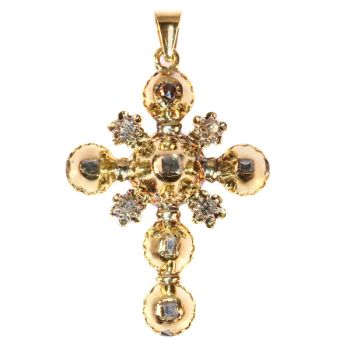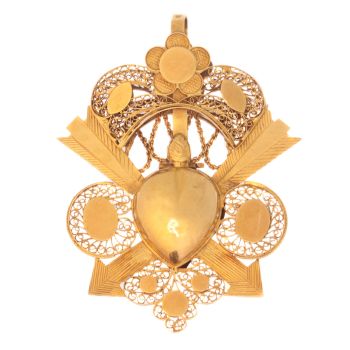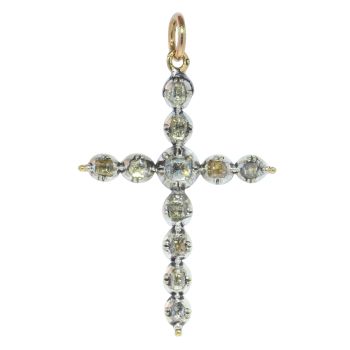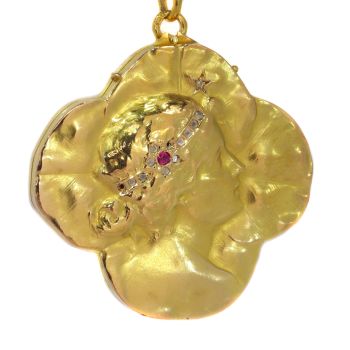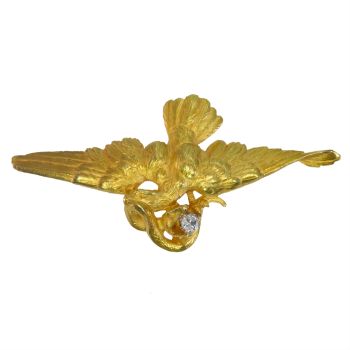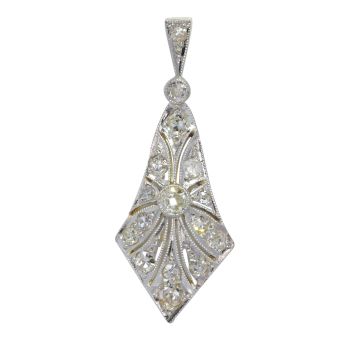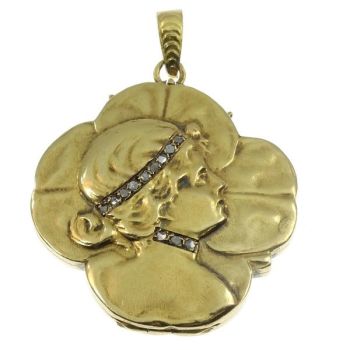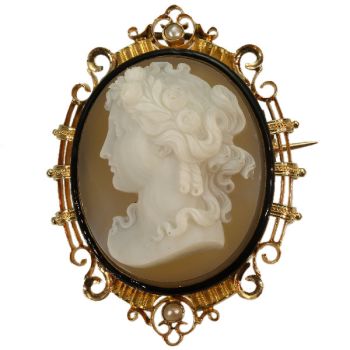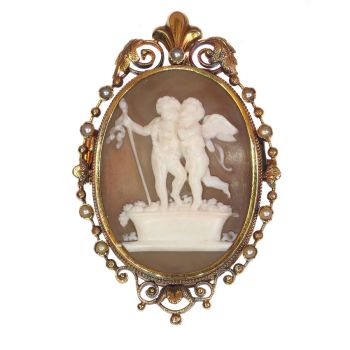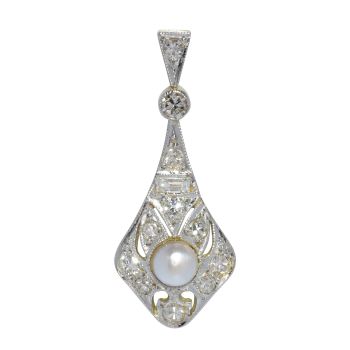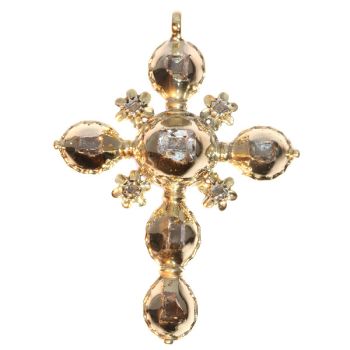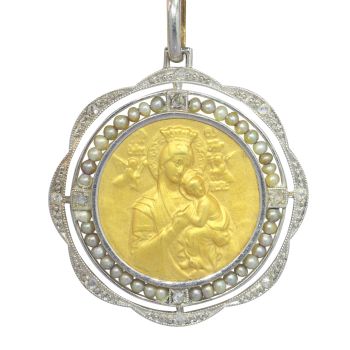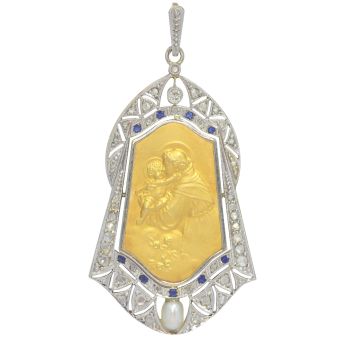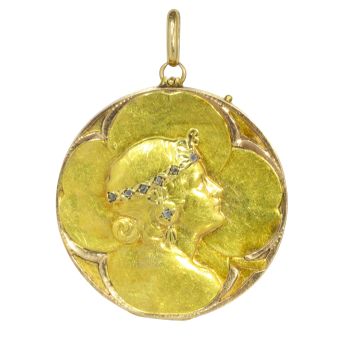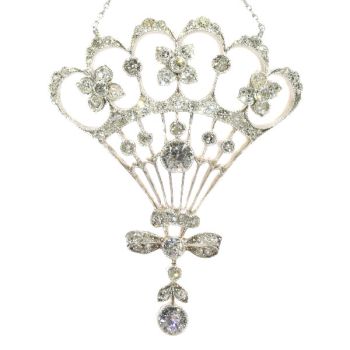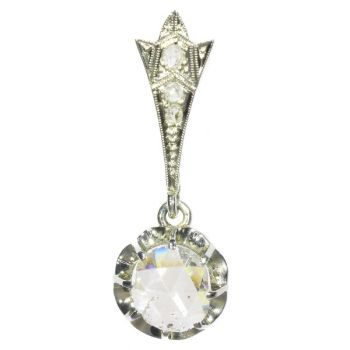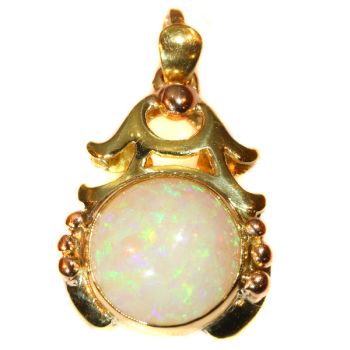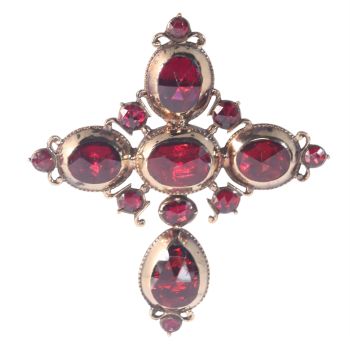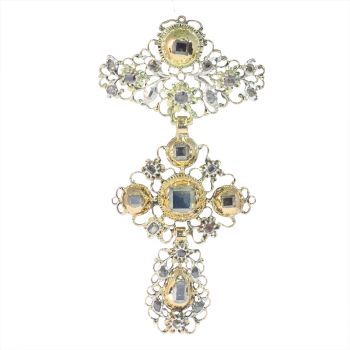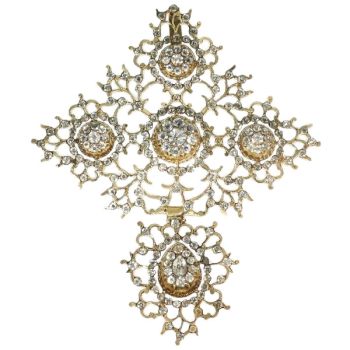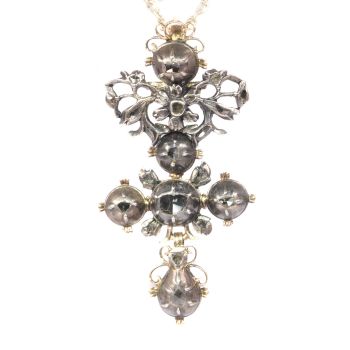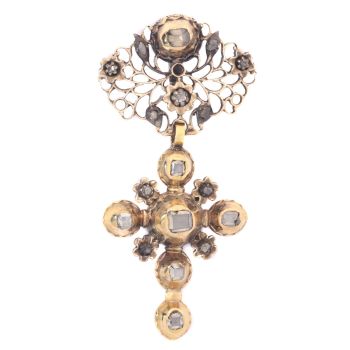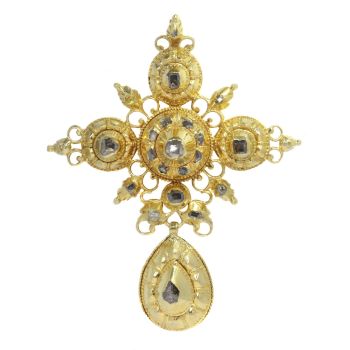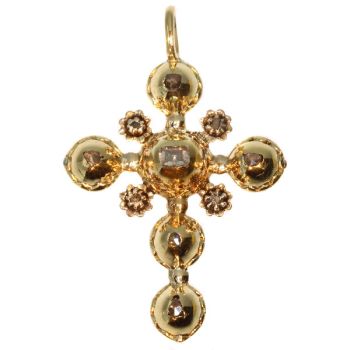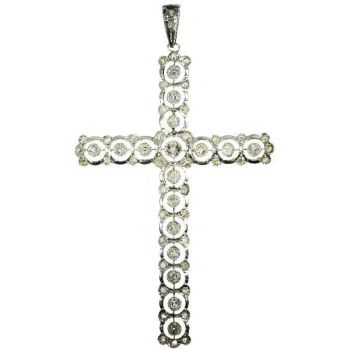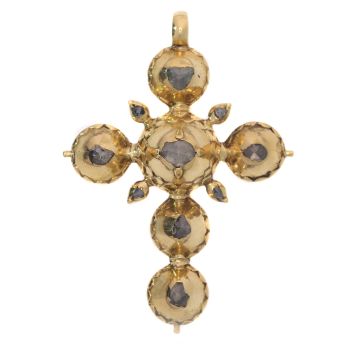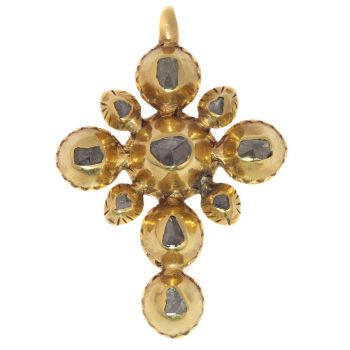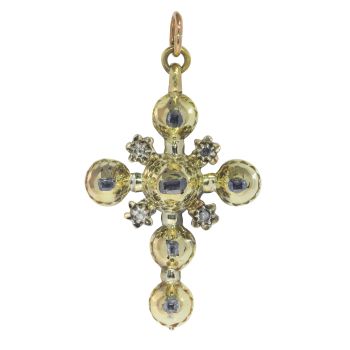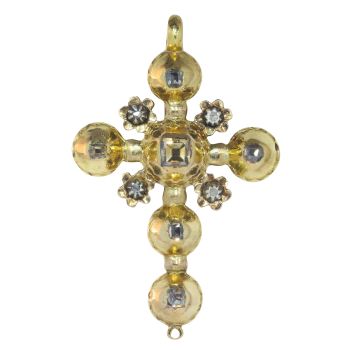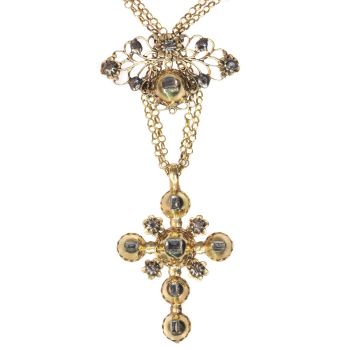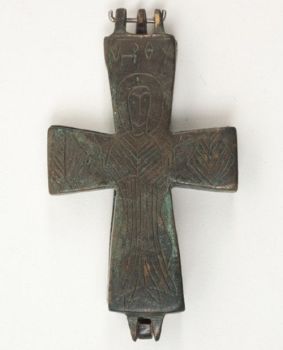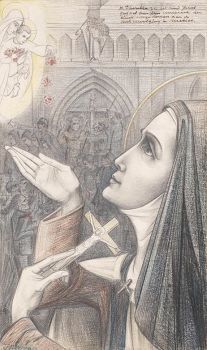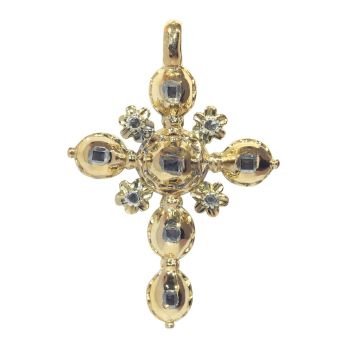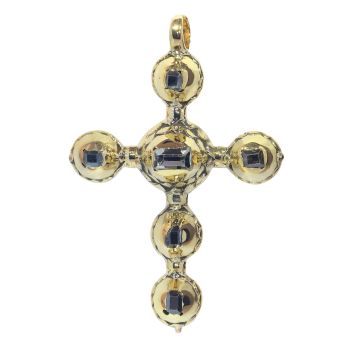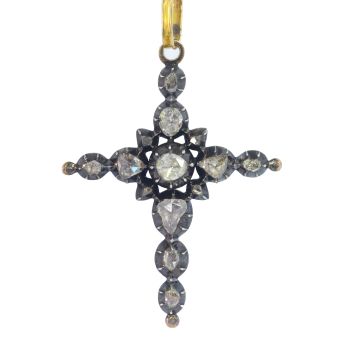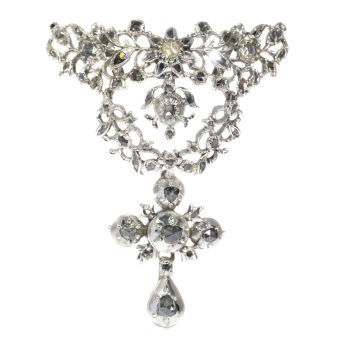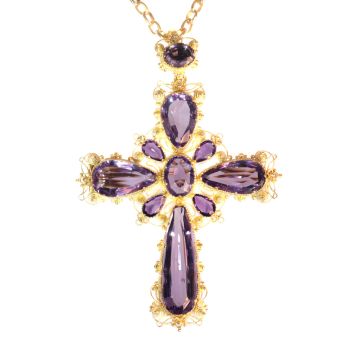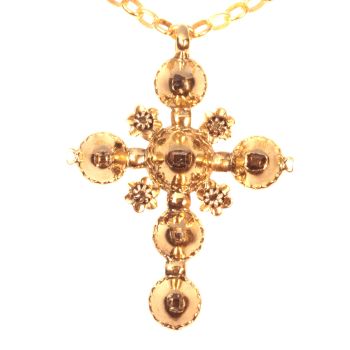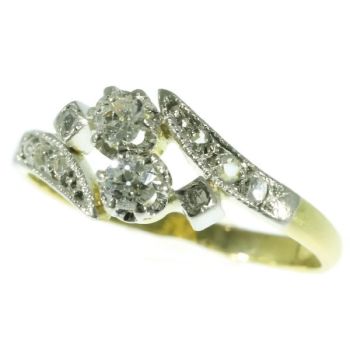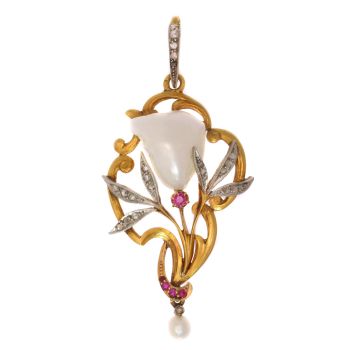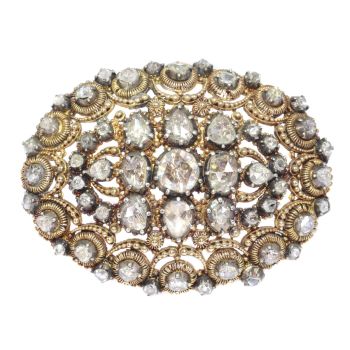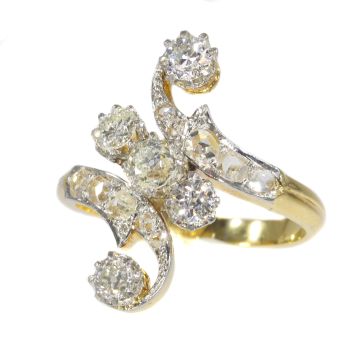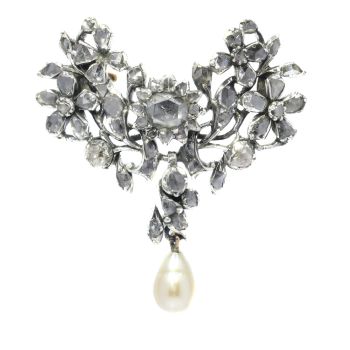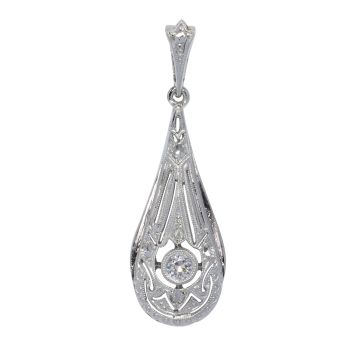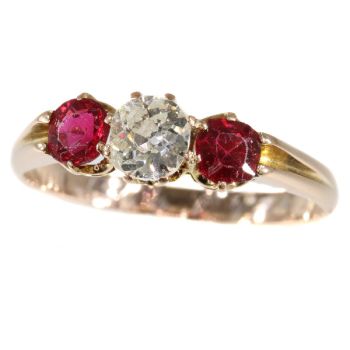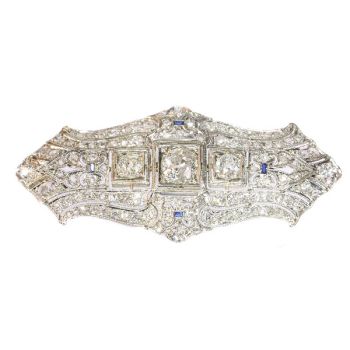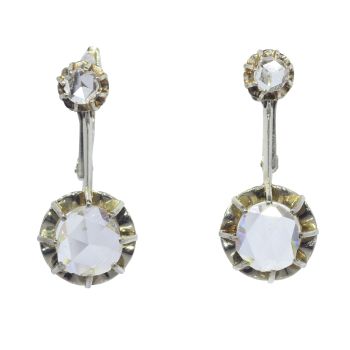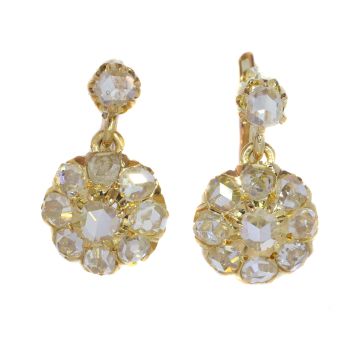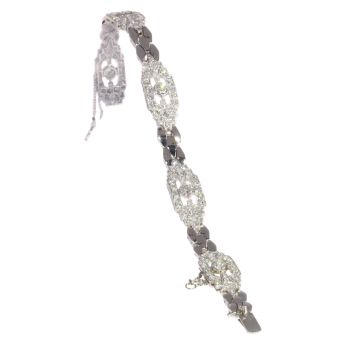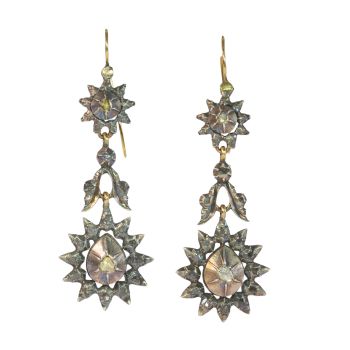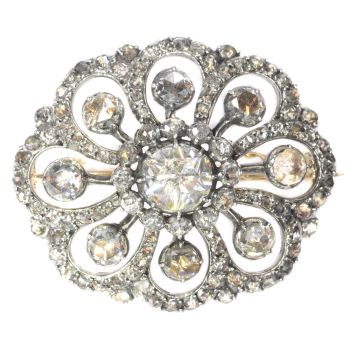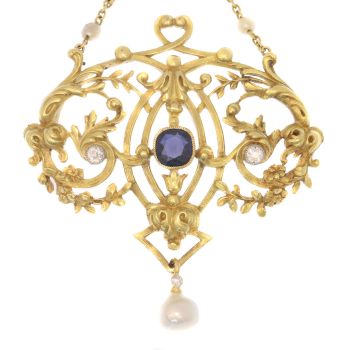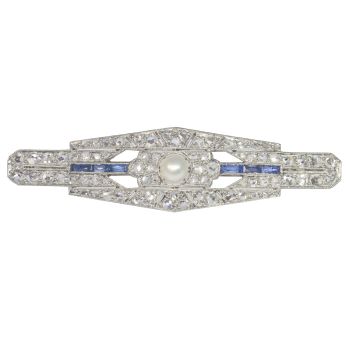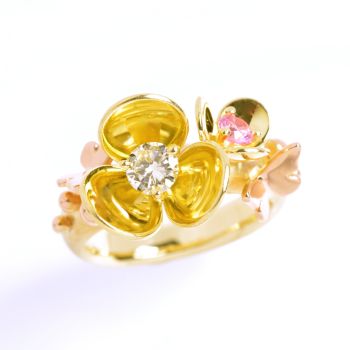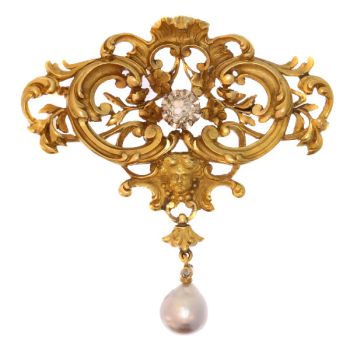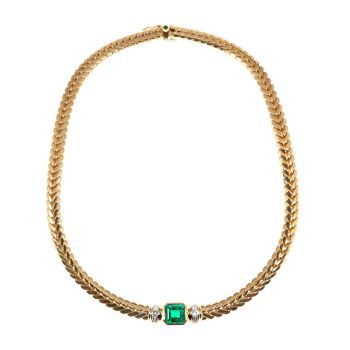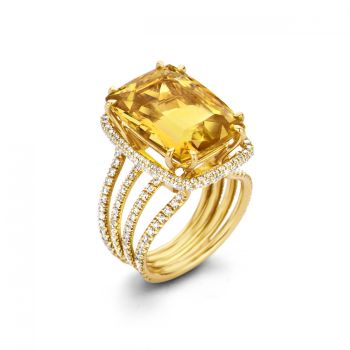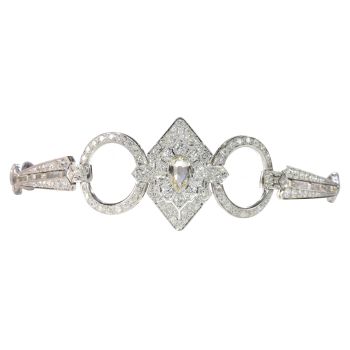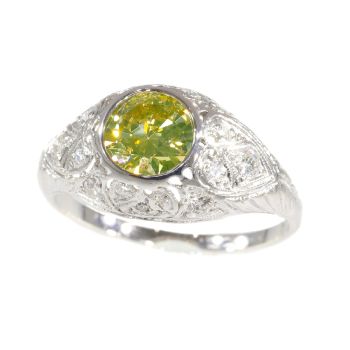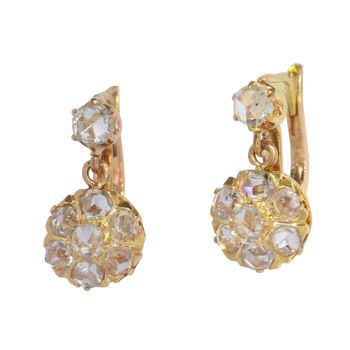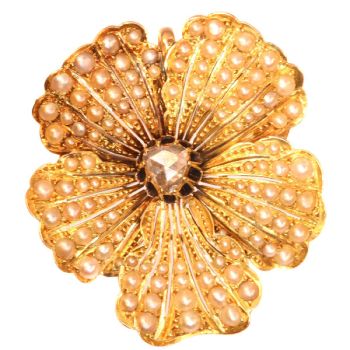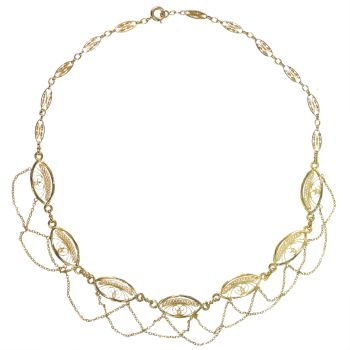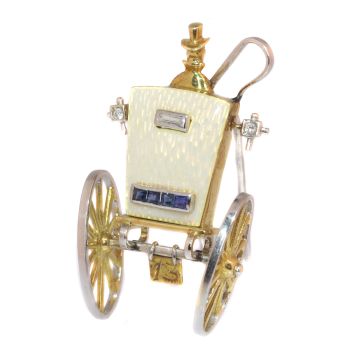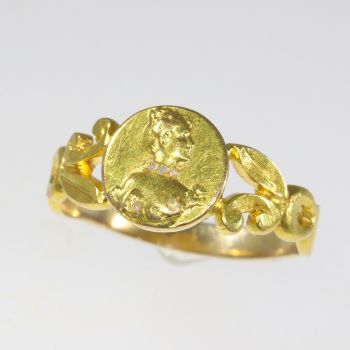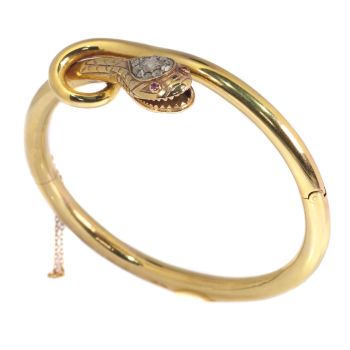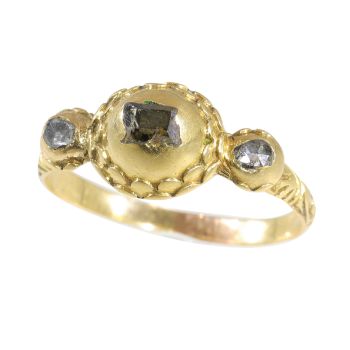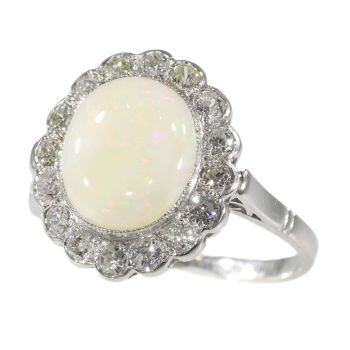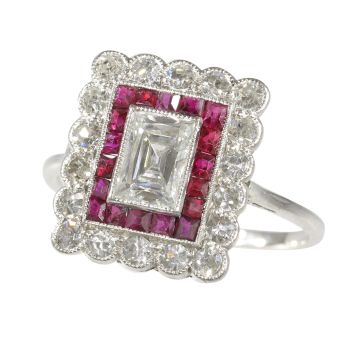1750s Rococo Silver Cross: Artistry in Jewellery 1750
Artista Desconhecido
Adin Fine Antique Jewellery
- Sobre arte
A vintage silver cross pendant from around 1750 showcases the ornate Rococo design. Adorned with fifteen rose cut diamonds and senailles, each diamond is set to emphasise its radiance. Uniquely, the reverse side is treated with fire-gilding, a historictechnique intended to prevent tarnishing against skin and fabric, highlighting the piece’s practical and artistic heritage. This pendant is a testament to the sophisticated artistry of the mid-18th century, presenting a piece that resonates with theelegance and charm valued by aficionados of antique jewellery.
Antique jewelry object group
cross pendant
Condition
In very good condition, considering its age
more info on our condition scale
Country of origin
unknown
Style
Rococo - Rococo (less commonly roccoco) also referred to as "Late Baroque" is an 18th century style which developed as Baroque artists gave up their symmetry and became increasingly more ornate, florid, and playful. Rococo rooms were designed as totalworks of art with elegant and ornate furniture, small sculptures, ornamental mirrors, and tapestry complementing architecture, reliefs, and wall paintings. It was largely supplanted by the Neoclassic style. In 1835 the Dictionary of the French Academystated that the word Rococo "usually covers the kind of ornament, style and design associated with Louis XV's reign and the beginning of that of Louis XVI". It includes therefore, all types of art produced around the middle of the 18th century inFrance.
See also: Rococo
more info on styles
Style specifics
Rococo is a style of decoration that followed, c.1730, the baroque style in France (where it was also called rocaille), the principal features of which are asymmetry of ornament and a repertoire consisting to a considerable extent of rockwork, shells,flowers, foliage, and scrollwork. It was developed in France under Louis XV, 1715-74, and spread to Italy, Germany, and Austria and to a lesser extent to England.
Period
ca. 1750
Events & facts of this era, poetry of this era, fashion of this era.
Source of inspiration
Christianity
Theme
Cross - The cross is one of the most ancient human symbols, and is used by many religions, such as Christianity. It is frequently a representation of the division of the world into four elements (or cardinal points), or alternately as the union of theconcepts of divinity, the vertical line, and the world, the horizontal line. (from: Wikipedia)
Material
Silver with gilded back
more info on precious metals
Technique
The rose cuts are set on foil. This is a special technique that was used to bring the lustre of the diamonds to its best quality.
Extra information The reverse side of the centre of the cross is hand-engraved and, although not perfectly preserved, it is still evident that the reverse has been fire-gilded, an old technique no longer in use.
Diamonds
Fifteen rose cut diamonds and senailles. A senaille is a simplified rose cut diamond, a small diamond chip with perhaps a few polished facets. We do not have the weight of the rose cuts diamonds nor the senailles which is normal in our trade when it comes to rose cut diamonds and senailles.
All diamonds we offer are screened by the I.J.G.C. for whether they are natural or synthetic, and all diamonds in this jewel are 100% guaranteed to be natural.
Birthstones
Diamond is the birthstone (or month stone) for April.
more info on birthstones
Hallmarks
No trace.
more info on hallmarks
Dimensions
4,91 cm (1,93 inch) x 3,75 cm (1,48 inch)
see picture with a ruler in millimeters and inches
Weight
11,20 gram (7,20 dwt)
Adin Reference Nº
24121-0345
Copyright photography
Adin, fine antique jewellery
Additional information
our latest acquisitions
jewelry glossary
wall of fame
visit us in Antwerp
subscribe to our mailinglist
- Sobre artista
Pode acontecer que um artista ou criador seja desconhecido.
Algumas obras não devem ser determinadas por quem são feitas ou são feitas por (um grupo de) artesãos. Exemplos são estátuas dos tempos antigos, móveis, espelhos ou assinaturas que não são claras ou legíveis, mas também algumas obras não são assinadas.
Além disso, você pode encontrar a seguinte descrição:
•"Atribuído a …." Na opinião deles, provavelmente uma obra do artista, pelo menos em parte
• “Estúdio de…” ou “Oficina de” Em sua opinião um trabalho executado no estúdio ou oficina do artista, possivelmente sob sua supervisão
• "Círculo de ..." Na opinião deles, uma obra da época do artista mostrando sua influência, intimamente associada ao artista, mas não necessariamente seu aluno
•“Estilo de…” ou “Seguidor de…” Na opinião deles, um trabalho executado no estilo do artista, mas não necessariamente por um aluno; pode ser contemporâneo ou quase contemporâneo
• "Maneira de ..." Na opinião deles, uma obra no estilo do artista, mas de data posterior
•"Depois …." Na opinião deles uma cópia (de qualquer data) de uma obra do artista
• “Assinado…”, “Datado…” ou “Inscrito” Na opinião deles, a obra foi assinada/datada/inscrita pelo artista. A adição de um ponto de interrogação indica um elemento de dúvida
• "Com assinatura ….”, “Com data ….”, “Com inscrição ….” ou “Tem assinatura/data/inscrição” na opinião deles a assinatura/data/inscrição foi adicionada por outra pessoa que não o artista
Você está interessado em comprar esta obra de arte?
Artwork details
Related artworks
- 1 - 4 / 12
Artista Desconhecido
A pair of angels Antwerp, 17th century, Carrara marble17th century
Preço em pedidoFrederik Muller
Artista Desconhecido
Een Gotische zuidelijke Nederlanden wandklok1580 - 1590
Preço em pedidoNico van den Assem restauratie
Johannes van Dreght
Antique Dutch still life flowers in vase1740 - 1800
Preço em pedidoGallerease Selected
 Com curadoria de
Com curadoria deDanny Bree
1 - 4 / 24- 1 - 4 / 24
- 1 - 4 / 24
- 1 - 4 / 24
- 1 - 4 / 12







